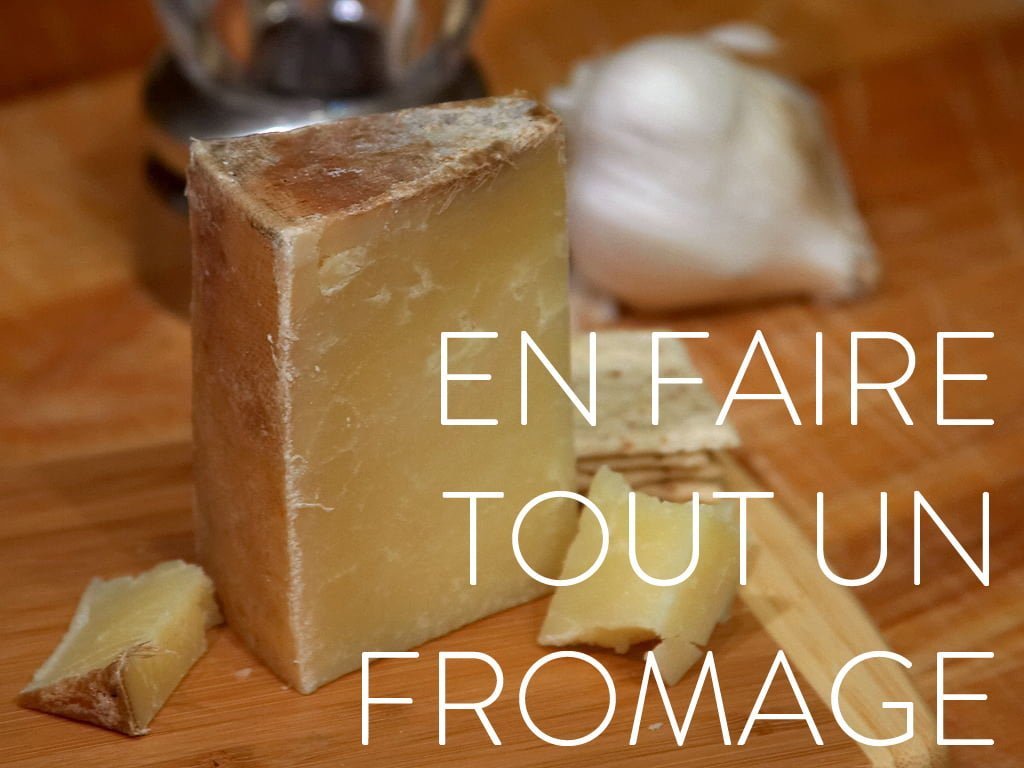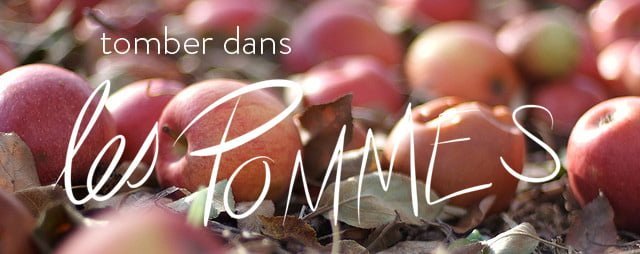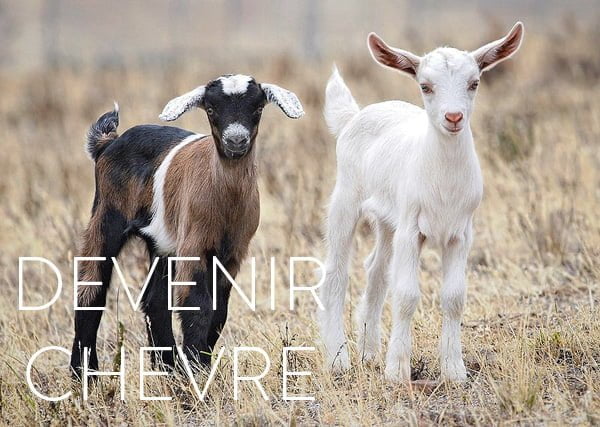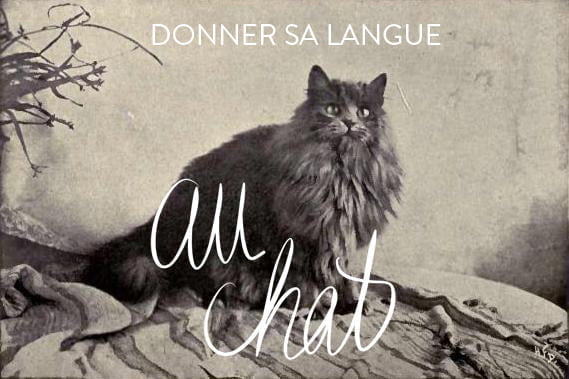Our 10 favourite French idioms and expressions
 We love French because it’s elegant and beautiful, but the langue d’amour certainly has its fair share of hilarious idioms and expressions.
We love French because it’s elegant and beautiful, but the langue d’amour certainly has its fair share of hilarious idioms and expressions.
While in English we may be watching cats and dogs fall from the sky, in France, ‘il pleut comme vache qui pisse’ (it rains like a cow pissing), and the madness doesn’t end there.
Read through our favourite ten French idioms below, and enjoy finding weird and wonderful ways to slip them into your French conversations.
The French enjoy their gastronomic metaphors…
1. C’est la fin des haricots
Perfect for when you’re feeling furious, ‘c’est la fin des haricots’ literally translates as ‘it’s the end of the beans’. It equates to the English, ‘that’s the last straw’. The phrase makes beans feel suddenly very dramatic, and we’re not the only ones who find it funny.
French District also featured this expression on their list of hilarious French idioms, and there is speculation among the francophone world regarding its origins. Check out Linternaute and Expressio for conflicting theories.
2. En faire tout un fromage
The French certainly love their cheese, and this expression serves to prove it. Featured by Coraline l’Enfant in her MyFrenchLife series on idioms, ‘en faire tout un fromage’ is the French equivalent of ‘to make a mountain out of a molehill’, or to exaggerate something.
3. Arriver comme un cheveu sur la soupe
Yet another food-based idiom, this translates as ‘to arrive like a hair in the soup’.
Featured on Globule’s long list of French phrases you won’t learn at school, this is the perfect way to convey something unexpected, awkward, and completely unrelated. We just wish English had an equivalent…
4. Tomber dans les pommes
Another of Coraline l’Enfant’s secrets to sounding French (and yet another idiom based on food), ‘tomber dans les pommes’ means literally ‘to fall in the apples’, and denotes fainting, or passing out.
You can also use ‘rester dans les pommes’ for someone who is still out cold. While the origins of this particular phrase are unknown, it’s very colloquial, and thus very useful.
5. Et patati et patata
Chosen by About’s Laura. K Lawless as one of her favourite French phrases, this conveys ‘so on and so forth’. Very informal, this phrase is onomatopoeic in French, as it originates from patatain (‘giddy up’ in English). It is an excellent way to finish a sentence you might otherwise have left awkwardly dawdling…
Check out Katerina Forrester’s article on French onomatopoeia to discover words that will make you sound colloquially French…
And anything to do with animals…
6. Devenir chêvre
‘Devenir chêvre’, or ‘to become a goat’, means to get angry. This is interesting when contrasted with the English idiom ‘to get your goat’.
The origins of this phrase are founded in the fact that goats used to be housed with cattle, as it was believed they had a calming effect. Consequently, if you ‘got someone’s goat’ it would result in agitated cattle.
The French obviously had other ideas about the temperament of goats. According to Expressio, goats were brusque and aggressive, hence the use of ‘devenir chêvre’ to denote someone getting angry.
7. Donner sa langue au chat
One of the more famous French idioms, ‘donner sa langue au chat’ means to give up. Although we’re not sure we will ever give our tongue to a cat, no matter how hopeless the situation, this one is hugely popular in France. You’ll hear it, and you should use it.
Laura. K Lawless explains that this saying is used in the context of not knowing the answer, and to stop guessing. Linternaute explains that the origins of this lay in the reputation of the cat as a secret keeper. Once you had finished guessing, you would give the cat your tongue and it would give you the answer.
Add something really poetic…
8. La douleur exquise
Featured on Buzzfeed as a phrase that should exist in English, it translates directly as ‘the exquisite pain’. The actual meaning is a little lost in translation, but denotes the terrible pain of wanting someone you can’t have. Although it may not be funny, we couldn’t resist including this poetic, tragically romantic, idiom.
9. S’entendre comme larrons en foire
Similar to the English ‘thick as thieves’, this translates as ‘to get along like thieves at a fair’ and means ‘to get along well’. It makes marginally more sense than the English version, and as far as we can tell both expressions base themselves on the idea that two people would get on so well that they could conceivably hatch a plan and commit a crime together.
And if you want to be really colloquial….
10. Balpeau
Less of an idiom and more just slang, balpeau (meaning nothing) is an example of verlan, an argot used mainly in the Parisian banlieues, which works by turning words on their head.
Femme becomes meuf, fou becomes ouf, and méchant becomes chanmé (as if learning one set of vocab isn’t difficult enough!).
Luckily, this slang language is really reserved for teenagers and jeunes, but it doesn’t hurt to have a few words under your belt…
What are your favourite French expressions? Add your suggestions in the comment box below.
Image Credits1. Cheese, via Public Domain.
2. Apples, by Jeff Kubina via Flickr.
3. Baby goats jan 2007 crop by User:Fir0002, via Wikimedia Commons.
4. Persian Cat, via Wikipedia.
5. Tyrone Power & Alice Faye in Ragtime, via Wikipedia.
NOTE: This article has proven so popular that it has been refreshed and republished in 2021












This is such an interesting article! I have a peculiar feeling that ‘tomber dans les pommes’ was to do with making cider and falling off your ladder in the orchard…but I couldn’t say for sure!
Someone once told me that a French slang term for a hangover is ‘to have a cat on your head’ or some such. A quick Googling doesn’t verify this, but I think that would be a fantastic term to describe the fuzzy headedness, difficulty concentrating and inevitable pain of a hangover! Can any native French speakers verify this?
Number 4 (tomber dans les pommes) is my favourite, I think it was the first French idiom I ever learnt, so I definitely always remember it. Idioms can be so confusing when you hear them in general conversation, but they always really grab my attention- I love that we often have something similar in English, but it’s somehow managed to take on a slight transformation.
These are all so funny! I find French expressions to be generally very vulgar. You see these beautiful French women speaking and when you quite don’t understand it sounds like music- then you find out what “fait chier” means. Tragic.
I love to read these French idioms. French language is wonderful French idioms makes it more beautiful.
Lilly
One of my French aunts told me that “J’ai vu la loupe derniere soir” means that “I had sex last night.” Literally, it means “I saw the wolf.” I told my other aunt who lives in Paris about this and she was shocked and told me to NEVER use that phrase in decent company! ?
Bonjour,
Nous avons tellement d’expressions liées à la nourriture ! J’aime bien l’expression avec “du lard et du cochon” comme par exemple : “je ne sais pas s’il plaisante ou non, c’est du lard ou du cochon” ? Les enfants adorent toutes ces expressions et ne comprennent pas toujours pourquoi on n’utilise pas les mêmes dans les autres langues 🙂 !
Bonne journée,
Nous n’avons pas élevé des cochons ensemble!
Chercher midi à quatorze heures
Il ou elle m’a fait voir Trente-six chandelles
Mettre un lapin
En avoir ras le bol
Thank you Simone would you be so kind as to add the meaning of each of your 5 expressions?